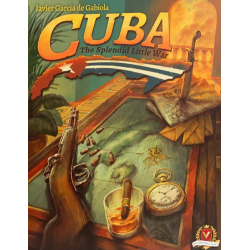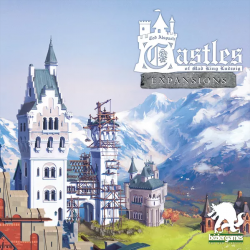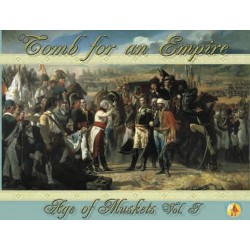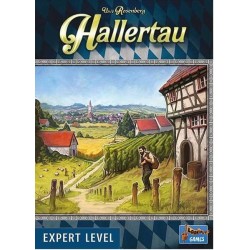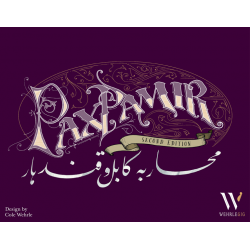No products in the cart.
Active filters
Cuba: The Splendid Little War
Cuba: The Splendid Little War, from designer Javier Garcia de Gabiola, is a two-player simulation of the third War of Cuban Independence, which lasted from 1895 to 1898. (This was the last of the three liberation wars fought between Cuba and Spain; the previous wars were the Ten Years\' War (1868-1878) and the Little War (1879-1880). One player controls the forces of the Spanish colonial government, fighting to retain Cuba; the other player controls the Cuban rebels fighting for their independence.
Castles of Mad King Ludwig: Expansions
In Castles of Mad King Ludwig, you built the perfect castles subject to the whims of the King. But now he wants even more (he is mad, after all). Castles of Mad King Ludwig: Expansions contains several expansions that can be played separately or in any combination, as well as brand new bonus cards and favors.
Age of Muskets Volume I: Tomb for an Empire
Age of Muskets is a rule set that covers the campaigns from the late XVII century to the first half of the XIX. It emphasizes Command and Control as well as the uncertainty and friction of any military operation. Players take command of an army of the period, represented by their headquarters, and control their attached units, their men and equipment. The purpose is to re-create all the relevant factors of war at the operational level in the pre-industrial age.
Hallertau
Take a step into the world\'s biggest contiguous hop-growing region, Hallertau. A strategy game by Uwe Rosenberg where players are leaders of a small town, attempting to improve the craft workshops and to raise the town\'s wealth by growing hops.
Pax Pamir: Second Edition
In Pax Pamir, players assume the role of nineteenth century Afghan leaders attempting to forge a new state after the collapse of the Durrani Empire. Western histories often call this period "The Great Game" because of the role played by the Europeans who attempted to use central Asia as a theater for their own rivalries. In this game, those empires are viewed strictly from the perspective of the Afghans who sought to manipulate the interloping ferengi (foreigners) for their own purposes.

